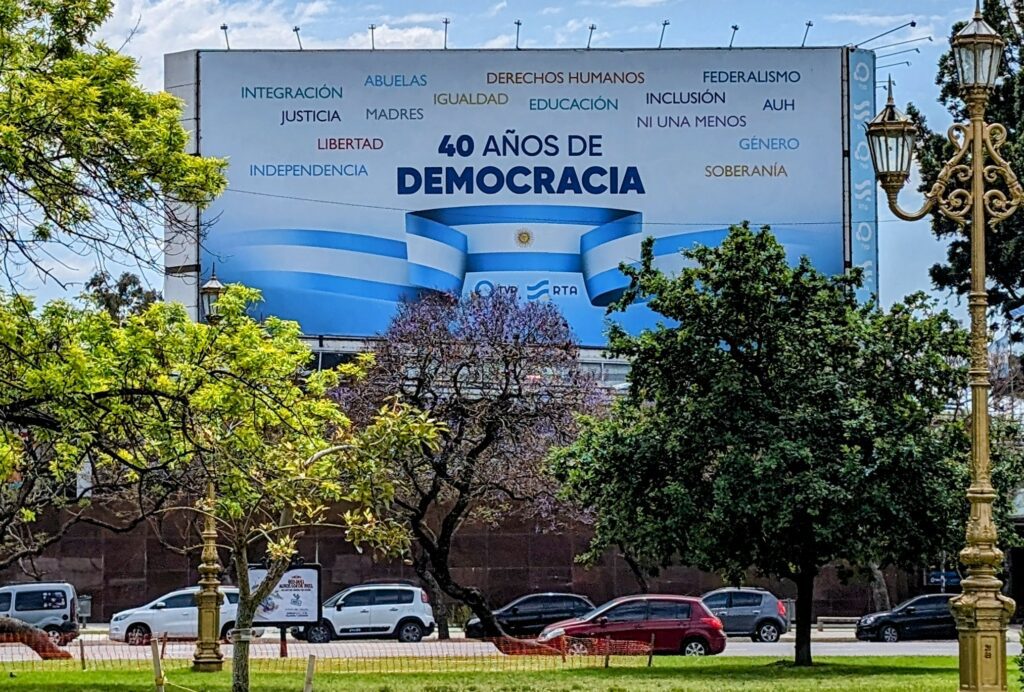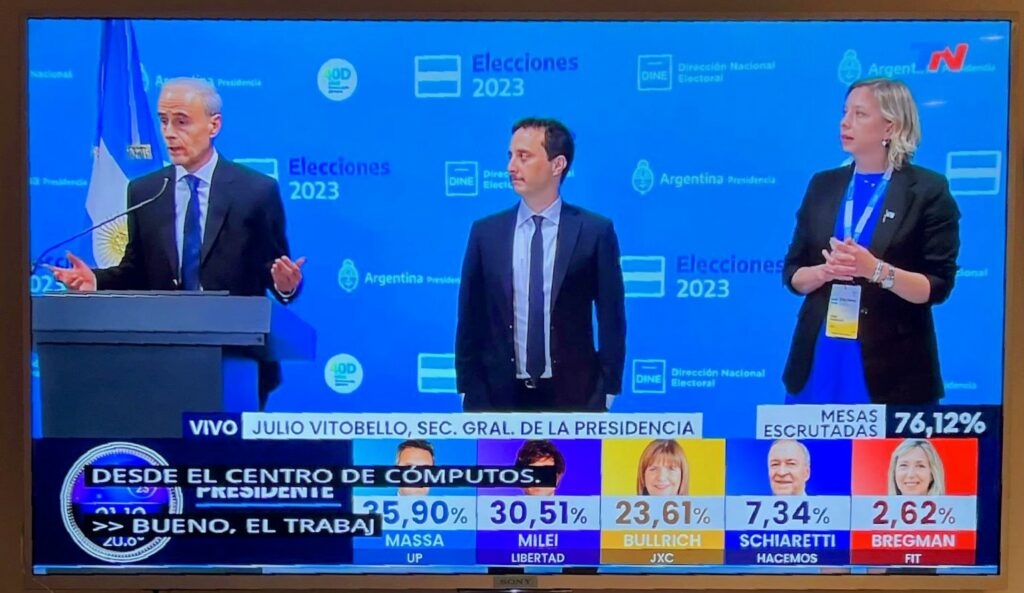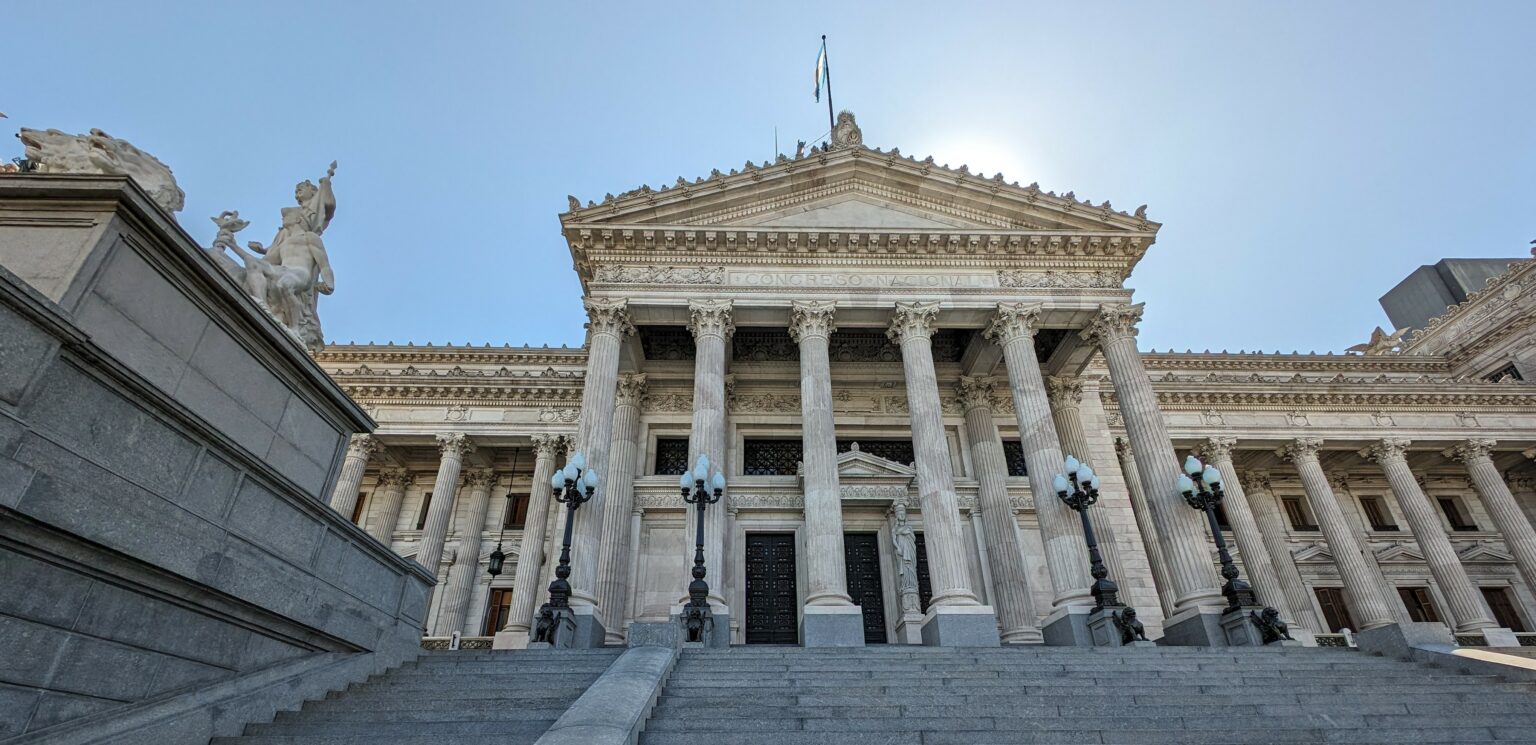Arriving in Argentina with a major presidential election on the horizon was a moment of reflection for me. While living in the United States, some of my social interactions led to a political conversation. It was a heavy cloud that surrounded everything around me. It inundated my thoughts, my newsfeed, my social media, etc. (I do surround myself with similar friends who also always think about our political system, which doesn’t help.) And while leaving the United States felt like an escape from that cloud, I will always have an interest in how political systems are developed and how they affect daily society, making this election in Argentina particularly interesting.
When we arrived in Buenos Aires, we quickly learned that a presidential election was happening that week. (This was a few weeks ago and there will be a run-off in a week as well). I was more than happy to be a bystander while observing the differences of the process of the election with that in the United States. (They got rid of the electoral college in 1995!)
Democracy in Argentina


There were a number of things that I found interesting and remarkable for a country that is newer to democracy. First of all, their pride in democracy is not something they take for granted. Over the last 40 years, they have been able to maintain a democracy, the longest period of democracy in this country. A large portion of the population remembers the military dictatorships that ran this country and are proud of where they are today. This is something that they hold with great pride. Every tour guide has mentioned this fact. There are billboards around the city celebrating it. They recognize the hard work that they have put into maintaining a democracy and do not take it for granted.
Who Gets to Vote?
Every Argentine citizen between the ages of 18 and 70 is required to vote (and the voting age starts at 16). There are more than a few roadblocks in the United States that prevent this from happening (since we view NOT voting as a right as well). The penalty for not voting is a small fine and a suspension of political rights. BUT this suspension is forgiven prior to the following elections. They say here that if you don’t participate, you don’t get to complain! Overall, in this last election in Argentina, they had a 75% participation rate.
And it’s not just citizens who get to participate. If you are a legal resident, you get to vote in local elections as well. This ensures that people who are affected by measures have a say.
The Weekend of the Election in Argentina
Because voting is required, barriers to getting to the voting booth are alleviated. Voting happens on a Sunday, making it easy for many people with traditional Monday-Friday jobs. Many businesses were closed during the day that are traditionally open on Sundays. Public transportation is free for everybody so anyone can access voting booths.
However, it is not a total holiday. There are some restrictions (called veda) that are put in place. Starting on Friday, theaters, sporting events, and other open-air shows are suspended. In addition, Saturday evening through Sunday evening, the sale of any alcohol is prohibited.
The Night and Beyond of the Election in Argentina


So what happens on the evening of the election in Argentina? The polls close at 6 pm and news outlets are not allowed to release any projections prior to the official statement about the results. For this past election in Argentina, this statement came out around 9:30 pm, which determined a runoff. Because no candidate got more than 45% of the vote, there is a runoff between the top two candidates.
The rest of the evening felt fairly familiar: news reporters talking about the feelings in each of the candidates headquarters, candidates giving speeches, videos of rallies, interviews of supporters. And we get to experience it all over again in a week.

